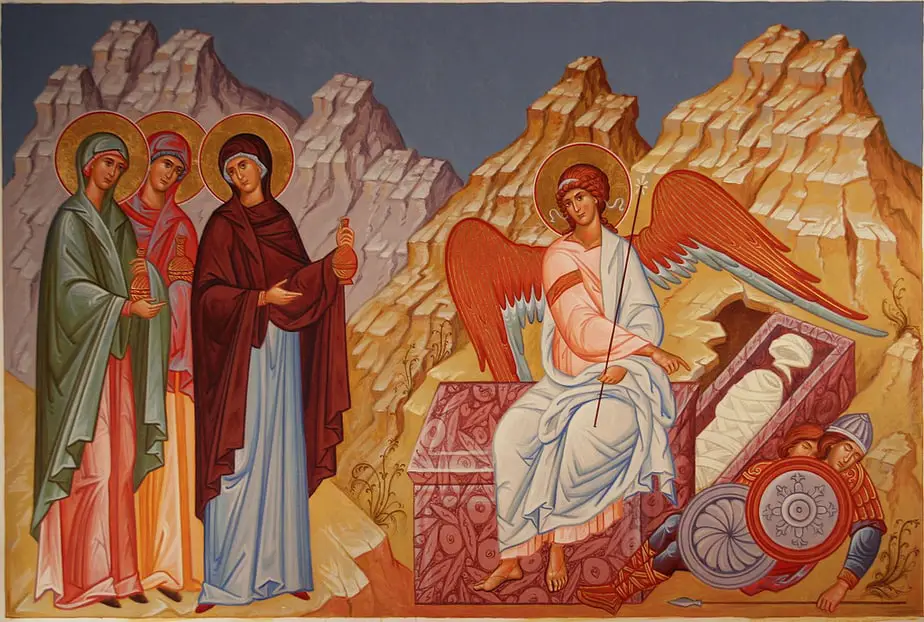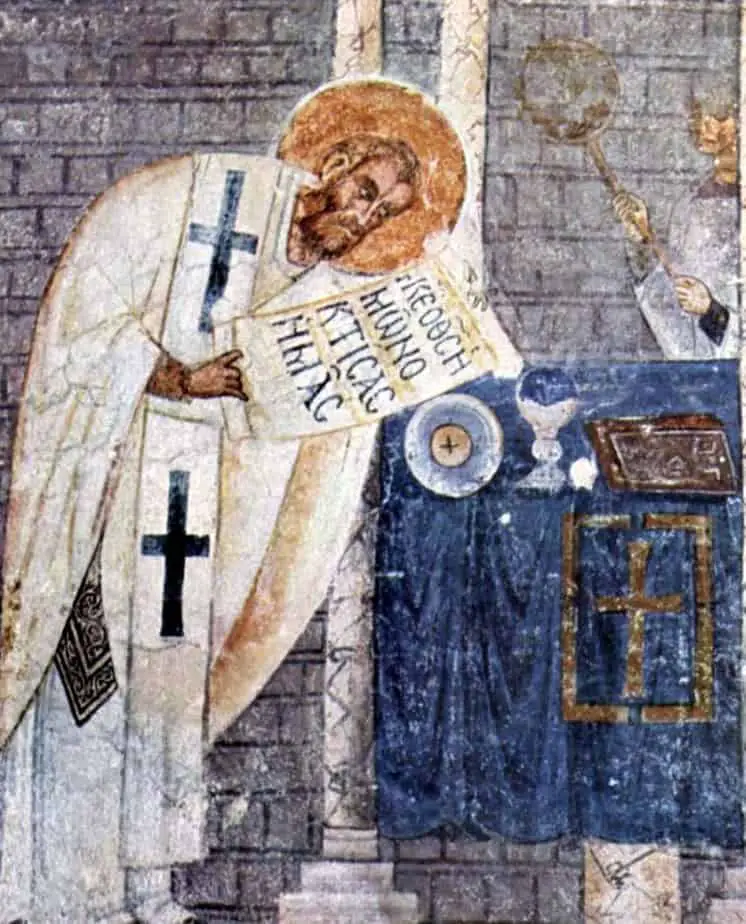St. Nikolai Velimirovich: . . . He had a clear foreknowledge that His body would, in death, receive no other anointing. . . .

And they said among themselves: “Who shall roll away the stone from the door of the sepulchre?” This was the subject of the Myrrh-bearing Women’s conversation as they climbed up to Golgotha, looking for nothing unexpected. The women’s weak hands where not strong enough to roll the stone away from the tomb’s entrance, for it was very great. Those poor women! They did not remember that the labour to perform which they were hastening so zealously to the tomb had already be performed during the Lord’s earthly life. At Bethany, at supper in the house of Simon the Leper, a woman had poured precious spikenard over Christ’s head. The omniscient Lord said at the time about this woman: “In that she hath poured this ointment on My body, she did it for My burial” (Matthew 26:12). He had a clear foreknowledge that His body would, in death, receive no other anointing. You may ask: then why did Providence allow these devout women to be so bitterly disappointed? To buy precious myrrh, to come fearfully through the dark and sleepless night to the tomb and not to perform that loving act for which they had sacrificed so much? But did Providence not reward their efforts in an incomparably richer way, in giving – in place of the dead body – the living Lord?
+ St. Nikolai Velimirovich, “22. The Second Sunday After Easter: The Gospel on the Myrhh-Bearing Women,” Homilies Volume 1: Commentary on the Gospel Readings for Great Feasts and Sundays Throughout the Year


